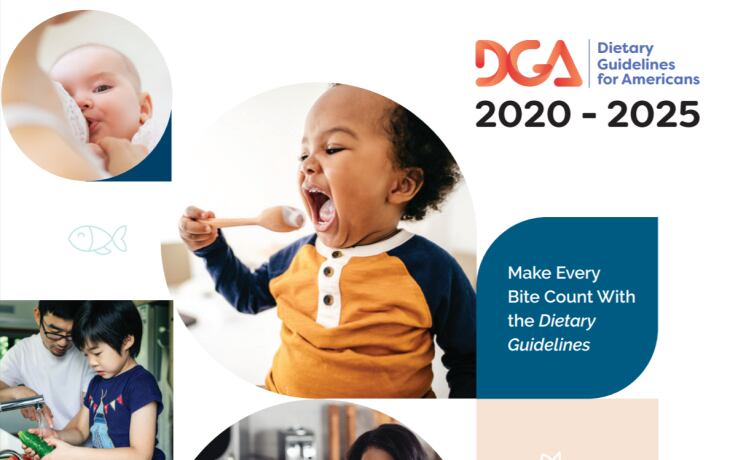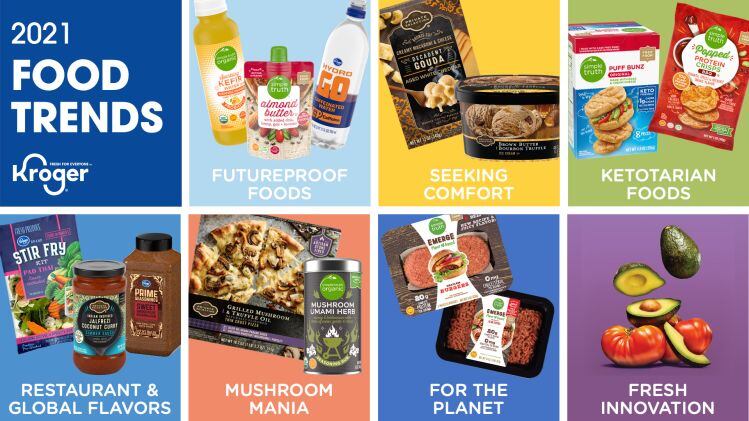This shift could dampen the typical short-term sales lifts typical of Q1 for brands making specific diet-related claims, or offering “restrictive” alternatives to conventional foods – such as low-carb bread replacements or keto desserts that skip the sugar in favor of permitted alternative sweeteners.
On the flip side, Americans’ decision to skip diet-related New Year’s resolutions could be related to the longer-term trend to eat healthier and seek products with immunity boosting claims inspired by the ongoing pandemic.
According to IFIC, only about 15% of Americans plan to make food or beverage resolutions in 2021 – that’s nearly three times less than what was reported in early 2020, Megan Meyer, director of science communications at IFIC, told FoodNavigator-USA.
“Given this statistic as well as data from previous surveys, this seems to suggest that Americans aren’t as interested in fad diets or being as restrictive with food as they may have been in pas years,” she explained.
“Instead,” she added, “we anticipate that Americans will be focusing more on their general health, with more simple and sustainable approaches.”
This could be because many Americans have either already adopted healthier eating patterns as a way to protect themselves against the coronavirus that causes COVID-19, or because they are exhausted from cooking and baking more during the past 10 months of the pandemic – whether for entertainment or out of necessity with restaurants shuttered or severely restricted and offices and schools closed.
“We’ve all heard stories and seen photos documenting culinary ambitions that were booming in quarantine, such as proliferation of budding bakers and sourdough starters,” IFIC notes in its 2021 trends predictions. “But these kitchen projects may have run their course with consumers’ food priorities shifting towards convenience and affordability, and away from time-consuming and labor-intensive endeavors.”
For similar reasons, they may be shunning overly complicated or restrictive fad diets in favor of simply putting nutritious food on the table for themselves and their families.
To do this, IFIC predicts 2021 will see more Americans making “semi-homemade” meals with staples or pre-made, shelf stable components that can be quickly assembled.
Financial fallout from pandemic will influence purchases in 2021
In addition to prioritizing convenience over restrictive or fad diets, Meyer said many Americans also carefully will weigh cost when selecting groceries – again because of the impact of the pandemic.
“Given the significant financial impact of the pandemic, we anticipate that affordability is going to resonate among most Americans as we move into 2021,” she said, noting that nearly three in 10 Americans report being worried about affording food for their households this year.
One way that consumers may seek to save money and time in 2021 could be by replacing more meals with snacks, predicts IFIC.
“Snacking has certainly picked up during the pandemic. Our 2020 Food & Health Survey, fielded in April, found that about one-quarter of Americans (26%) snacked multiple times a day, which was unchanged from 2019. By August 2020, that number had increased to over one-third (36%). In addition, we found that about a third report that they are eating snacks alone,” said Meyer.
Based on this, she said IFIC predicts consumers will seek out more substantial snacks that combine protein, healthy fats and whole grains as meal replacements.
Meyer also predicts “that as the world opens back up, more people return to the office and are on-the-go, you will see a resurgence of single serve portion sizes.”
Immunity-boosting products, caffeine remain a priority
While Americans may eschew complicated meals and restrictive diets in favor of comfort and ease in the new year, IFIC predicts they likely will continue to embrace all products boasting immunity benefits in 2021.
According to the group’s 2020 Food & Health Survey, 40% of people who are following diets or seeking foods for health benefits, 40% wanted immunity benefits. Likewise, one in five said in December they were doing so because of the pandemic and a desire to strengthen their immune system, according to IFIC.
IFIC also predicts Americans will continue to reach for more caffeinated beverages this month and in 2021 than they did at the beginning of last year as they continue to balance altered work life demands due to the pandemic.
According to a survey the organization conducted in December, 28% of respondents said they were consuming more caffeinated beverages than they did last January. This trend is particularly pervasive among parents of young children with 67% of parents with children under 18 years reporting consuming caffeine in multiple ways compared to only 55% adults without young children.
Overall, many of the trends that will shape food and beverage consumption in 2021 will boil down the fallout and continuing pressure from the coronavirus pandemic, Meyer said.
“COVID-19 will be the trend that has the most significant impact on the CPG food and beverage industry,” she said, explaining, “In 2020, we saw he pandemic significantly alter so many different facets of the food system from supply chain to eating habits and behaviors and as such, we don’t anticipate those effects to fade anytime soon.”




